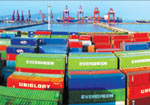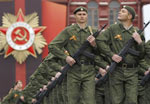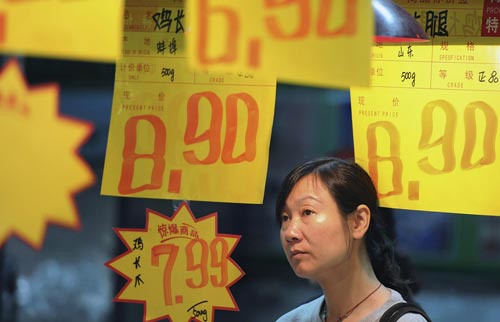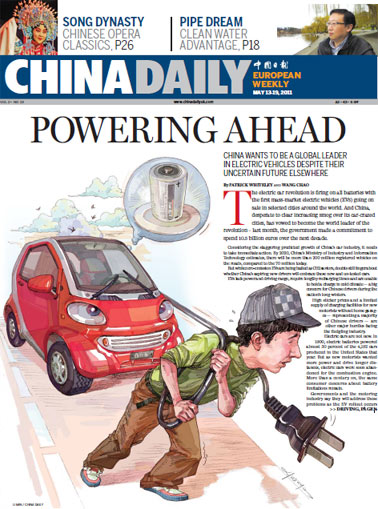Economy
Inflation eases to 5.3% in April
Updated: 2011-05-11 17:30
(Agencies)
China's inflation eased in April to 5.3 percent and other data, including industrial output and loans, suggested slower activity in the world's second-biggest economy.
Inflation was slightly higher than expected but lower than a 32-month high of 5.4 percent in March, underlining expectations that price pressures were peaking and would start to ease in the second half of 2011.
The annual pace of industrial output and retail sales eased more than expected, backing the view that the economic growth is calming.
Annual food price increases, the main driver of overall inflation, pulled back to 11.5 percent in April from 11.7 percent in March.
"Price pressures are still uncomfortably strong, but there are some signs in today's data that policy measures put in place over the last six months or so are having an impact," said Brian Jackson, economist with Royal Bank of Canada in Hong Kong.
|
|
Jackson said inflation remained high enough to warrant two more increases by the central bank in interest rates and further yuan appreciation against the dollar.
But several analysts said other data released on Wednesday, including figures that showed a slowdown in the pace of money supply and bank loans outstanding, suggested that the central bank could be less aggressive with monetary tightening in the months ahead.
"The April economic indicators make it less likely that the central bank will raise required reserve ratios or interest rates." said Shao Yu, an economist with Hongyuan Securities in Shanghai.
The central bank has raised interest rates four times since last October and banks' reserve requirements seven times, which has meant big banks have a record 20.5 percent in deposits tied up. Those funds could otherwise become loans.
Markets showed little reaction to the data.
China's industrial output in April rose 13.4 percent from a year earlier, easing from a pace of 14.8 percent in March, the National Bureau of Statistics said.
Retail sales rose 17.1 percent, weakening from 17.4 percent in March.
M2 money supply growth of 15.3 percent was much lower than forecasts for 16.5 percent and also marked the lowest pace in 29 months.
Outstanding yuan loans at the end of April were 17.5 percent higher than a year earlier, also the weakest pace in 29 months, central bank data showed.
The government reported Tuesday that import growth slumped to 21.8 percent from March's rapid 32.6 percent. That reflected weaker demand for iron ore and other goods as government curbs reduced investment and construction.
Though far too soon for Beijing to declare victory in its battle against inflation, the stabilization of prices suggested that tighter monetary policy was beginning to produce initial results, analysts said.
The government has a target of 4 percent annual inflation, but some analysts said it could be tough to achieve that goal given increasing labor costs and rising commodity and fuel prices.
Some commentators suggest inflation will force China's exporters to demand higher prices from customers in the United States, Europe and elsewhere. But analysts say they have yet to see that impact.
"There has been no direct pass-through from inflation in China to the price paid by importers of Chinese goods, a sign that Chinese firms are still able to absorb rising costs," said Mark Williams of Capital Economics in a report this week.
E-paper

War of the roses
European Chinese rose growers are beating their Chinese rivals at their own game
Preview of the coming issue
High-tech park gets big boost
At the source
Specials

New wave
Coastal city banks on marine sector to ride next stage of economic development

Drunk driving
Drunk drivers face a detention for one to six months and a revokation of their drivers' license.

V-Day parade
A military parade marking the 66th anniversary of the Soviet victory over Nazi.

